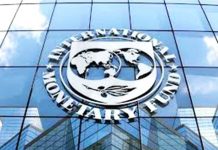Dr Bryan Acheampong, Minister of Food and Agriculture, has officially launched the Ghana Tree Crop Diversification Project (GTCDP), with a focus on revitalising the nation’s agricultural sector through diversification and sustainability.
Themed “Sowing the Seeds of the Future: Unlocking Ghana’s Tree Crop Potential for Inclusive and Sustainable Transformation,” the project aims to expand high-value tree crops – such as cashew, cocoa, coconut and rubber – while creating sustainable livelihoods for over 1.6 million households.
Funded through a $200 million International Development Association (IDA) credit from the World Bank, the GTCDP will be managed by the Tree Crops Development Authority (TCDA) and the Ghana Cocoa Board (COCOBOD) under the oversight of the Ministry of Food and Agriculture (MOFA).
Addressing players in the agro-chain industry in Accra recently, Dr Acheampong emphasised the project’s focus on environmental sustainability, job creation and inclusivity, particularly for women and youth.
“We are committed to building a resilient tree crop sector that supports our farmers, protects the environment and fosters sustainable growth for future generations,” said Dr. Acheampong, underscoring the government’s strategic push to modernise Ghana’s cocoa sector while developing six additional crops: cashew, shea, mango, coconut, rubber and oil palm.
The Minister for Finance, Dr Mohammed Amin Adam, on his part, noted that the project would address Ghana’s over-reliance on cocoa, a vital export crop that faces risks from deforestation, climate change and price volatility.
“The GTCDP supports Ghana’s broader development goals, promoting economic diversification and reducing market vulnerabilities,” he said, calling for effective coordination among TCDA, COCOBOD and development partners.
William Agyapong Quaittoo, CEO of TCDA, outlined the project’s five-year strategy to improve productivity, value addition, and market access.
Established under Act 1010 in 2019, the TCDA regulates and promotes sustainable development of key tree crops.
Mr Quaittoo underscored the economic potential of diversifying beyond cocoa, emphasising public-private partnerships as crucial to the project’s success.
“The GTCDP seeks to foster an investment-friendly regulatory environment and enhance Ghana’s competitiveness in global markets,” Mr. Quaittoo explained, expressing gratitude to the World Bank for its support.
The Ghana Cocoa Board (COCOBOD), led by Chief Executive Joseph Boahen Aidoo, said the initiative seeks to increase productivity, enhance climate resilience and boost domestic processing, creating jobs and economic growth.
Originally discussed with the World Bank in 2018, the project addresses challenges like Cocoa Swollen Shoot Virus Disease (CSSVD), which has affected 317,000 hectares of cocoa farms.
COCOBOD has already implemented new technologies since 2018, raising productivity and generating over 130,000 jobs.
The project will further strengthen COCOBOD’s digital capabilities, support cooperatives and protect vulnerable groups.
COCOBOD has committed an additional US$27.5 million to the initiative, aligning with Ghana’s broader cocoa sector modernization strategy.
Robert Taliercio O’Brien, the World Bank’s Country Director for Ghana, reaffirmed the institution’s commitment to supporting Ghana’s agricultural sector.
He detailed how GTCDP will drive climate resilience; enhance productivity and open market opportunities for certified cocoa and other crops.
“This project represents a collaborative effort to bolster rural resilience, create jobs and reduce poverty,” said O’Brien.
Key objectives include increasing productivity, improving market responsiveness and supporting value chains that prioritise social inclusion, especially for vulnerable communities.
The project will promote traceable, certified value chains and explore carbon crediting opportunities to offer additional income streams to farmers.
With an ambitious target of creating 20,000 jobs and restoring degraded lands, the GTCDP aims to make a lasting impact on Ghana’s tree crop sector and foster sustainable development.









